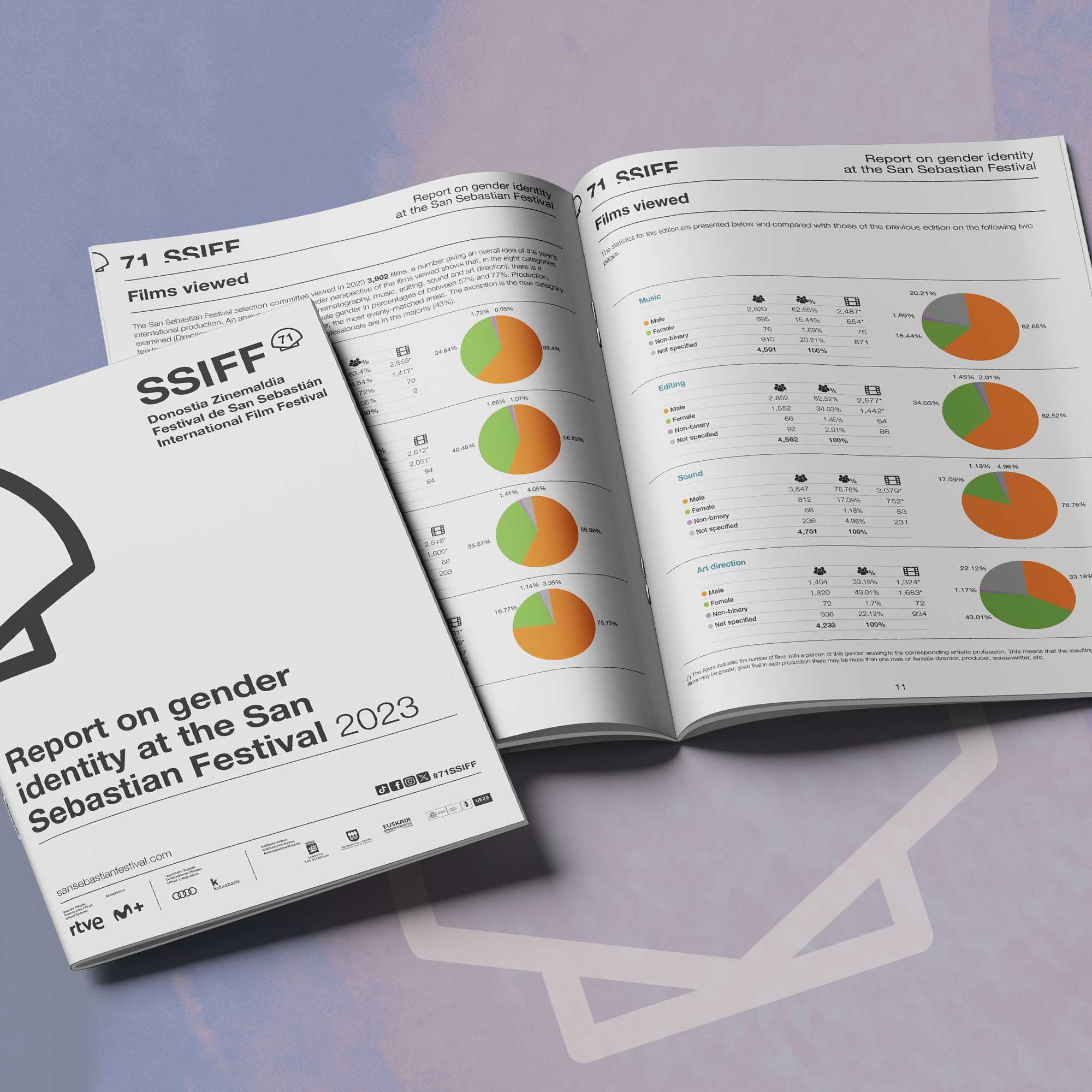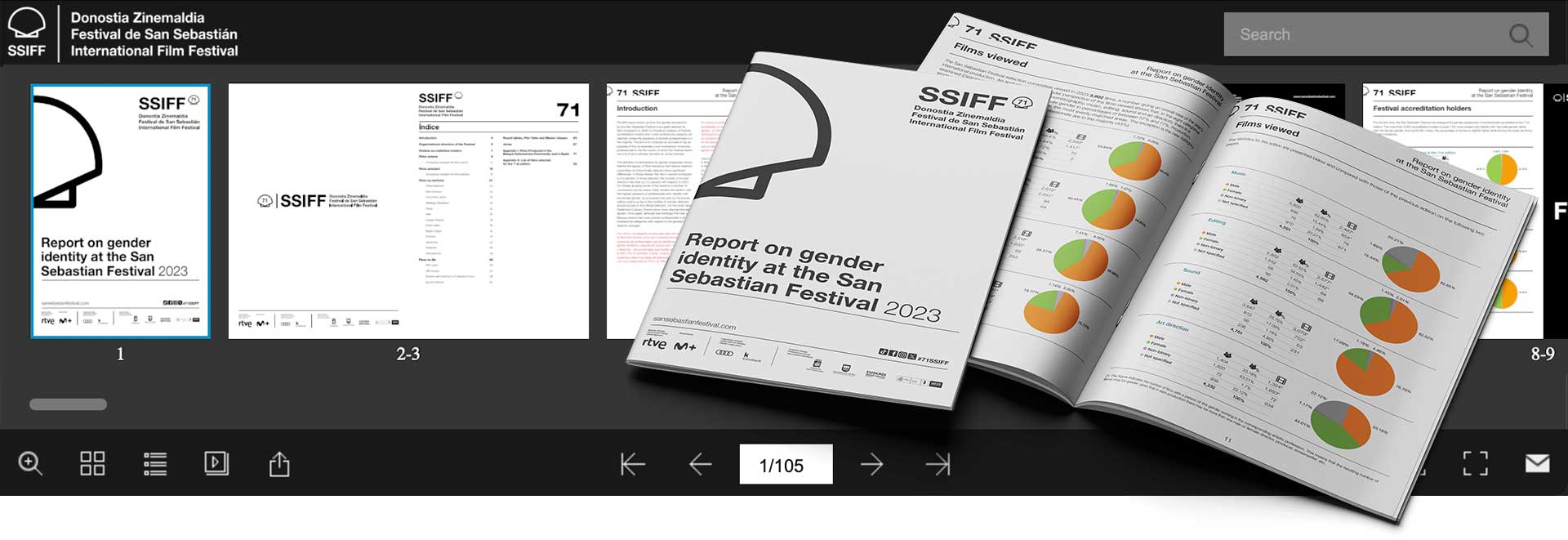The fifth report drawn up by the San Sebastian Festival from the gender perspective once again increases the scope of its study in 2023 to include the analysis of accreditation-holders and a new professional category: art direction. The aim of this detailed study is to obtain an x-ray showing as precisely as possible the consideration and involvement of women professionals in the film industry. This is an area in which the Festival aims to take an active part rather than simply witnessing its progression.
The statistics on gender participation are rising slowly. Neither the films viewed by the Festival selection committee nor those finally programmed show significant differences. Regarding production as a whole, the number of women producers has risen by 2.4 percent, while among the films selected, the number of women directors has risen by 3.3 percent with respect to 2022.
As far as professions are concerned, the category added to this year's report, art direction, is the one that shows the highest percentage of professionals who identify with the female gender, followed by production, editing, screenwriting and direction, with percentages of between 34% and 48%. On the other hand, sound, music and cinematography show extremely low figures on the participation of women creators, with an average of between 16% and 19%.
Regarding the profile of the more than 5,000 accreditation-holders at the 71st edition of the Festival from the gender point of view, 52% are men and 47% women. If we distinguish between the different accreditations, we find that there is almost parity among film industry guests, while the film crews show a prevalence of professionals who identify with the female gender and the male gender is in the majority when it comes to the press (62%).
Regarding the Festival sections, Nest remains the section with the highest presence of professionals who identify with the female gender, this year joined by Horizontes Latinos together with a rise in the participation of women producers and directors in the Official Selection. However, Perlak and Culinary Zinema show more disproportionate figures.
Like in Nest, the Festival's commitment to achieving parity among those taking their first steps in the industry can be seen in the projects selected for the Europe-Latin America Co-Production Forum and Ikusmira Berriak, as well as in the unfinished films participating in WIP Latam and WIP Europa. In the case of the residencies programme, the pledge to women directors and producers clearly filters into the Festival programme, and particularly its Official Selection with the presence of Raven Jackson's All Dirt Roads Taste of Salt (Ikusmira Berriak 2019), following its screening in the American competition at Sundance, and Jaione Camborda's O Corno / The Rye Horn (Ikusmira Berriak 2020), winner of the Golden Shell bestowed by the jury chaired by Claire Denis. This is the fourth year running that a film directed by a woman filmmaker has carried off the Festival's top award.
Internally, the Festival has launched two types of training, one generic for all staff, and another specific course for the selection and management committees on how to apply gender variables to the programming procedures. The 71st edition also saw the launch of the protocol on prevention and action in the event of sexual and gender-based abuse, and no incidents were recorded in this respect.






